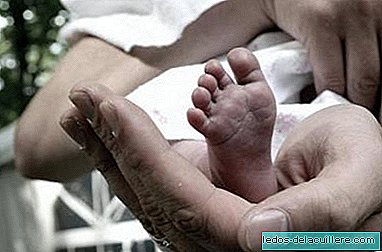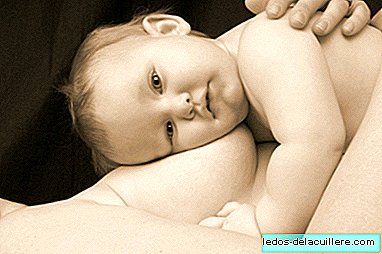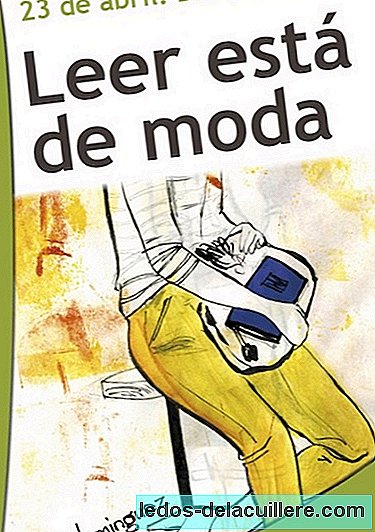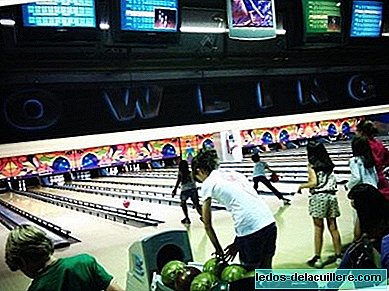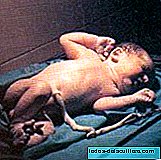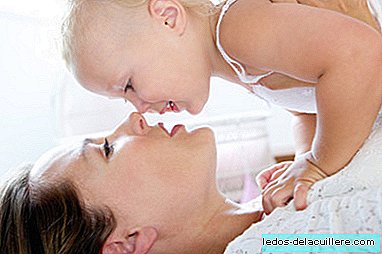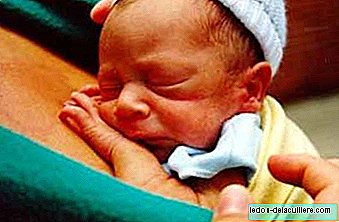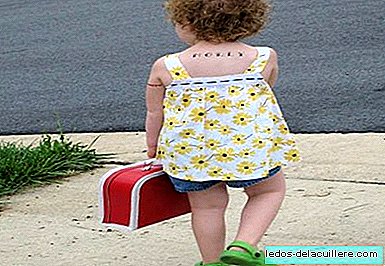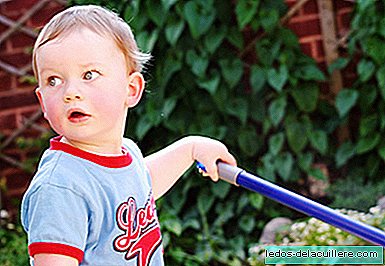
Today I start strong this entry saying everything with the title. When it comes to educating a child it is better that you are wrong to be a slave and do everything right. Or I at least prefer it that way.
We are many adults who as children grew up in a more or less authoritarian climate in which behind our decisions was always the judgment of our parents ("this you have done well", "this you have done wrong") and often, and With the passage of time, his words no longer positioned themselves behind, but rather went ahead, before our decision.
Be obedient to be a well educated child
The reason for having our parents on top to avoid being wrong and the reason for letting us know when we were wrong (with shouting or punishment) was to get us to be obedient, something that seems to be a sign, in children, of good education.
In the eyes of those who look at an obedient child, it is a child who does not bother, who behaves well, who knows how to stand before others, who pays attention to his parents, and that seems to be the right thing to do. However, a child who obeys others is a child who makes few or no decisions and is a child with very little analytical capacity for situations.
It will be customary (children end up getting used to not choosing and simply following their parents' mandates) or it will be to avoid the anger of their parents and judges, but the children end up being model children, of which many mothers teach with pride or those that are copies of their parents because they do exactly the same as them and yet they are slaves. They are slaves who do everything right and make no mistake, slaves who do what others tell them.
Let's say that these obedient children, unable to make their own decisions (if you ask them something, they look at their parents to know what they should answer), they grow up. When they are children they turn out to be exemplary and well educated, however nobody admires an adult unable to know which way to go, very indecisive, with little personality and with little capacity to solve the problems that appear to him.
Try yourself, get wrong and learn

"Why do we fall, Bruce?" Thomas Wayne told his son. The boy looked at him thoughtfully, waiting for the answer. The father approached who in the future would be known as the bat man and told him, almost in a whisper, as one who tells a secret: "To learn to get up."
This fragment, which I have recounted as a reminder of the movie Batman Begins, is nothing more than a cry for children's freedom, that freedom that allows them to choose, make decisions, develop their personality, succeed and make mistakes, stand up, even if it is on a tight rope and fall, more than once, to learn to get up.
Our role as parents is to educate our children so that they themselves choose whether to take risks or not and be there to, when they fall, help them get up if they need us. Each mistake is an opportunity to learn how to do something differently. Each error opens a new door to creativity and inventiveness, to logic. Each failure helps children think.
If we don't let them make a mistake, if we anticipate or if we continue with the chant of wanting our children to be obedient only we will make them obedient citizens, with little critical capacity, with little capacity to think of solutions to the problems that arise and with the need, often or always, of someone superior to tell them where to throw: “How can I choose a path if my path has Always been dictated by my elders? How do I know which is the best option, if I have never had to choose anything?
He who never chooses never makes mistakes and does everything right. The one who never chooses does not know the real consequences of doing something wrong and has trouble anticipating mistakes (how will I know what happens if I am wrong if I have never been wrong) and problems to solve them.
Let's play now that these children, those who have been able to choose and make mistakes, grow up. They will be people able to choose and anticipate mistakes, they will have personality to say "yes" and to say "no", they will be autonomous and independent and they will be clear on the way forward. They may err, like every human, but they will know how to try again or they will know how to be honest and not do it if the risk is greater than the benefit.
I do not have a crystal ball and this is only conjecture and hypothesis, but soon, it is logical that we grow to be quite similar to how we grew.
I do not want obedient children who always behave well. I want children to do children's things and make mistakes, screw up and learn with it, so that in the future they are good people because they want to be and not because I have imposed goodness as a mandate and to live the life they have decided to live (and not the one I've decided to live).
Photos | Martin Pettitt, mrsraggle on Flickr
In Babies and more | I don't like Supernanny's methods, “Using rewards and punishments has very strict rules”: interview with psychologist Teresa García, Self-motivation: the key to doing activities


